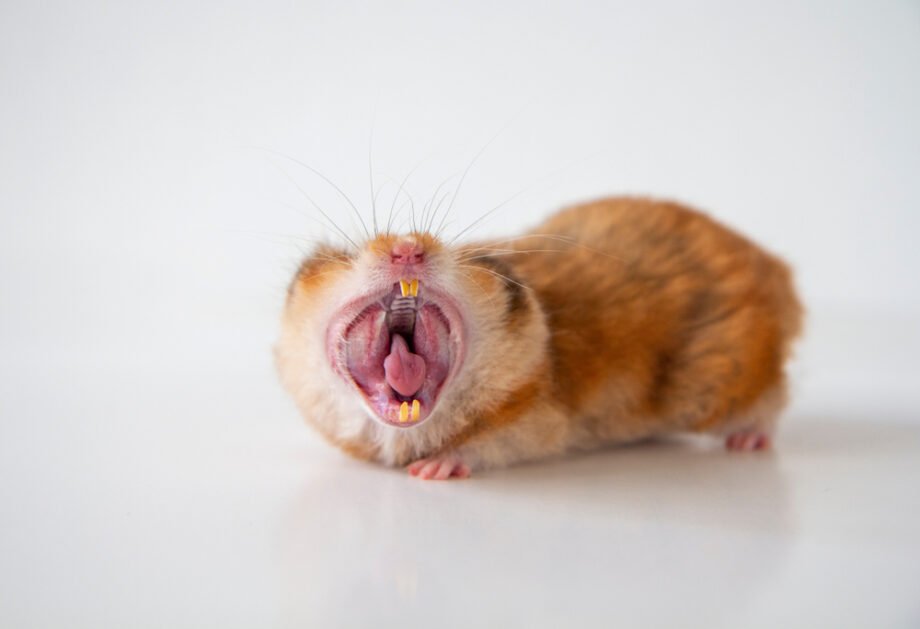Understanding Hamster Teeth
Hamsters are small, adorable creatures that make popular pets for many people. One fascinating aspect of these furry friends is their teeth. Hamsters have unique dental structures that require special care to ensure their overall health and well-being. In this article, we will explore the importance of hamster teeth, tooth care, common problems, and how to prevent them.
The Significance of Hamster Teeth
Hamsters have a set of incisors, which are their front teeth, and molars, which are their back teeth. These teeth are constantly growing throughout their lives. The reason behind this continuous growth is that hamsters are natural chewers. In the wild, they use their teeth to gnaw on various objects, such as branches and seeds.
The continuous growth of hamster teeth is essential for their survival. However, it also means that their teeth can become overgrown if not properly maintained. Overgrown teeth can lead to a range of health issues and discomfort for your hamster.
Tooth Care for Hamsters
To ensure the well-being of your hamster, it is crucial to provide proper tooth care. Here are some essential tips to keep in mind:
1. Balanced Diet: A balanced diet is crucial for maintaining healthy teeth in hamsters. Provide them with a variety of foods, including high-quality hamster pellets, fresh vegetables, and occasional treats. Avoid sugary or sticky foods, as they can cause dental problems.
2. Chew Toys: Hamsters need to chew on appropriate objects to wear down their teeth naturally. Provide them with chew toys made of safe materials, such as wooden blocks or untreated cardboard. These toys will help keep their teeth at a healthy length and prevent overgrowth.
3. Regular Inspections: Take the time to inspect your hamster’s teeth regularly. Gently hold your hamster and check for any signs of overgrowth, discoloration, or abnormalities. If you notice any issues, consult a veterinarian experienced in small animal dentistry.
4. Professional Trimming: In some cases, your hamster’s teeth may require professional trimming. This should only be done by a trained veterinarian who specializes in exotic pets. Regular visits to the vet will ensure that your hamster’s teeth are kept at an appropriate length.
Common Dental Problems in Hamsters
Despite your best efforts, hamsters can still experience dental problems. Here are some common issues to watch out for:
1. Overgrown Teeth: Overgrown teeth occur when a hamster’s teeth are not worn down naturally. This can lead to difficulty eating, weight loss, and even abscesses. Regular tooth care, as mentioned earlier, can help prevent this problem.
2. Malocclusion: Malocclusion is a condition where a hamster’s teeth do not align properly. This misalignment can cause the teeth to grow unevenly and lead to overgrowth. Malocclusion is often a genetic issue and may require ongoing dental care.
3. Tooth Grinding: Tooth grinding, also known as bruxism, is a common behavior in hamsters. It helps them maintain the length of their teeth. However, excessive grinding can indicate dental pain or discomfort. If you notice your hamster grinding its teeth excessively, consult a veterinarian.
Preventing Dental Problems
Prevention is key when it comes to hamster dental problems. By following these tips, you can minimize the risk of your hamster experiencing tooth-related issues:
1. Provide Appropriate Chew Toys: As mentioned earlier, offering safe chew toys will help your hamster naturally wear down its teeth. Ensure the toys are the right size for your hamster and regularly inspect them for wear and tear.
2. Regular Vet Check-ups: Schedule regular veterinary check-ups for your hamster, including dental examinations. A knowledgeable veterinarian can detect any dental issues early on and provide appropriate treatment.
3. Optimal Diet: Feed your hamster a balanced diet that promotes dental health. High-quality hamster pellets and fresh vegetables are essential components of a healthy diet. Avoid sugary or sticky foods that can contribute to tooth decay.
4. Maintain a Stress-free Environment: Stress can impact your hamster’s overall health, including its dental health. Provide a calm and comfortable environment for your hamster, minimizing any potential stressors.
In conclusion, hamster teeth require proper care and attention to ensure the well-being of these adorable pets. By understanding the significance of their teeth, implementing a tooth care routine, and being aware of common dental problems, you can help your hamster maintain healthy teeth throughout its life. Remember, prevention is key, so be proactive in providing the necessary care for your furry friend’s dental health.


Leave a Reply